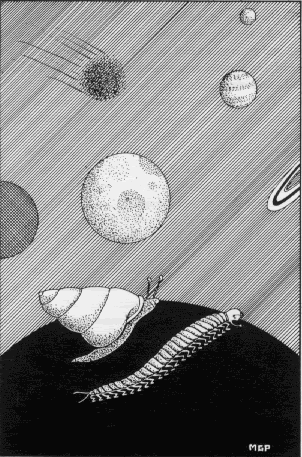The execution of an action by no means proves that we know, even superficially, what we are doing or how we are doing it. If we attempt to carry out an action with awareness---that is, to follow it in detail---we soon discover that even the simplest and most common of actions, such as getting up from a chair, is a mystery, and that we have no idea at all of how it is done. Do we contract the muscles of the stomach or of the back, do we tense the legs first, or tilt the body forward first, what do the eyes do, or the head? It is easy to demonstrate that man does not know what he is doing, right down to being unable to rise from a chair. He therefore has no choice but to return to his accustomed method, which is to give himself the order to get up and to leave it to the specialized organizations within himself to carry out the action as it pleases them, which means as he usually does.
We may thus learn that self-knowledge does not come without considerable effort, and can even interfere with the carrying out of actions. Thought and the intellect that knows are the enemies of automatic habitual action. This fact illustrated in the old story of the centipede who forgot how to walk after he had been asked in what order he moved his multitude of legs.
{Awareness Through Movement, by Moshe Feldenkrais}

{Image linked/programming by DPC}

